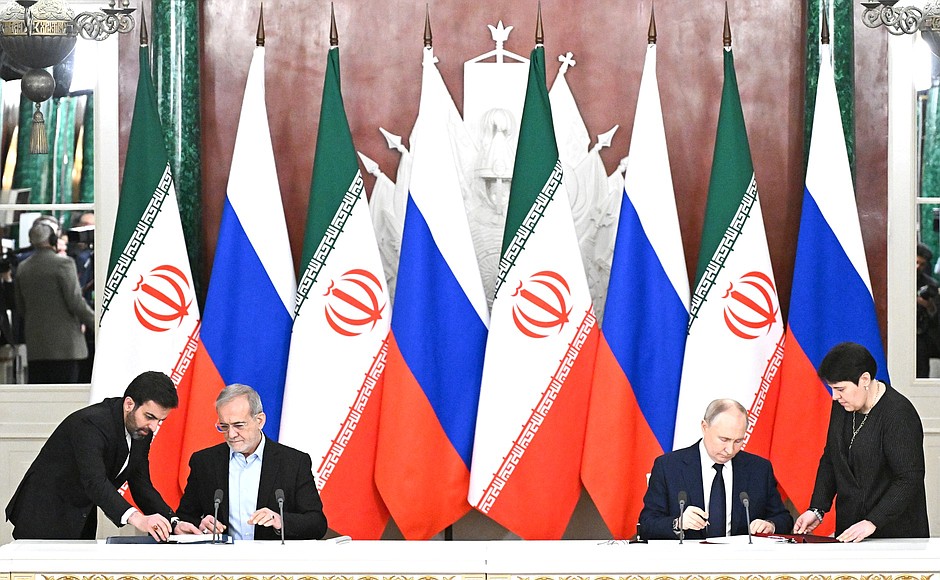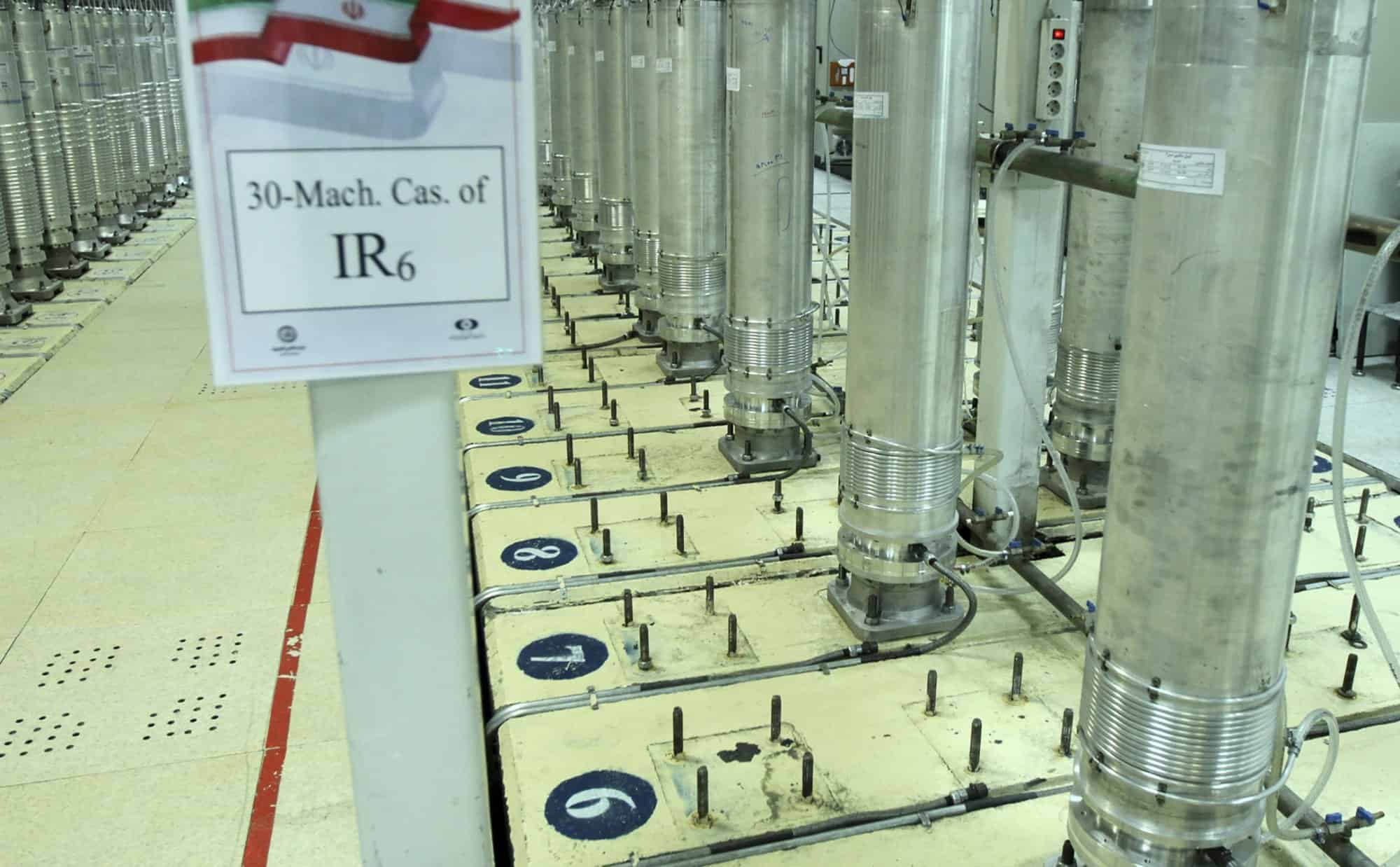
President of the Russian Federation Vladimir Putin and President of Iran Masoud Pezeshkian signed a Comprehensive Strategic Partnership Agreement.
The document was published on the website of the Russian Presidential Administration.
The new document replaces the agreement on the foundations of relations and principles of cooperation between Russia and Iran, signed in 2001. The agreement covers various areas: economic, trade, energy, scientific, technological, and military.
It is concluded for a period of 20 years with the possibility of automatic renewal every 5 years. It is subject to ratification and will enter into force 30 days after the date of the last written notification of the completion of the relevant internal procedures.

However, unlike a similar agreement with North Korea, this treaty does not oblige the parties to provide each other with military assistance in case of an attack.
“If one of the Contracting Parties is subjected to aggression, the other Contracting Party shall not provide any military or other assistance to the aggressor that contributes to the continuation of the aggression and shall endeavor to settle the differences arising on the basis of the Charter of the United Nations and others,” reads paragraph 3, Article 3 of the Treaty.
The parties also agreed not to enter into agreements with third countries aimed against each other and not to permit the use of their territory to violate the sovereignty of the other party.
Military cooperation under the new treaty also includes:
In addition, Russia and Iran agreed to conduct joint military exercises on their territories and abroad, within the framework of international law. They also agreed to cooperate in the military-technical sphere.
In addition, the document enshrines commitments to strengthen the “multipolar world order” and develop cross-border cooperation.

As previously reported, on the eve of the signing of this agreement, an adviser to Iran’s Supreme Leader Ayatollah Ali Khamenei repeatedly paid secret visits to Russia, trying to enlist help in implementing the nuclear program and strengthening air defense.
“As their strategic relationship deepens and Russia becomes dependent on Iranian missiles and drones, there are concerns that Moscow is ready to cross its previously established red lines on Iran’s nuclear program,” a Western intelligence official told The Times.
Підтримати нас можна через:
Приват: 5169 3351 0164 7408 PayPal - [email protected] Стати нашим патроном за лінком ⬇
Subscribe to our newsletter
or on ours Telegram
Thank you!!
You are subscribed to our newsletter